Our morning itinerary includes a guided tour of Stone Town, the main city of Zanzibar.
Stone Town is the primary hub for purchasing or trading goods on the island. The area is also known for its architecture — a unique blend of Swahili influence with Arab, Persian, Indian, and European elements. Stone Town was named after the coral stone used to construct of most buildings here; it became an UNESCO World Heritage Site in 2000. The heart of Stone Town is a maze of alleyways leading to homes, mosques, and shops.
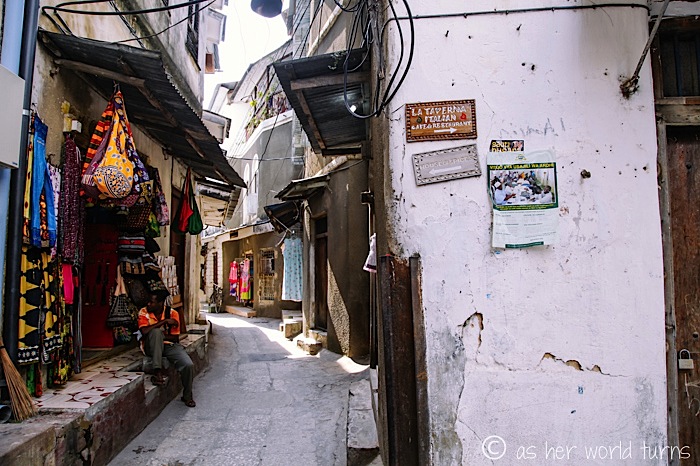
But we begin at the outskirts near the main food market:
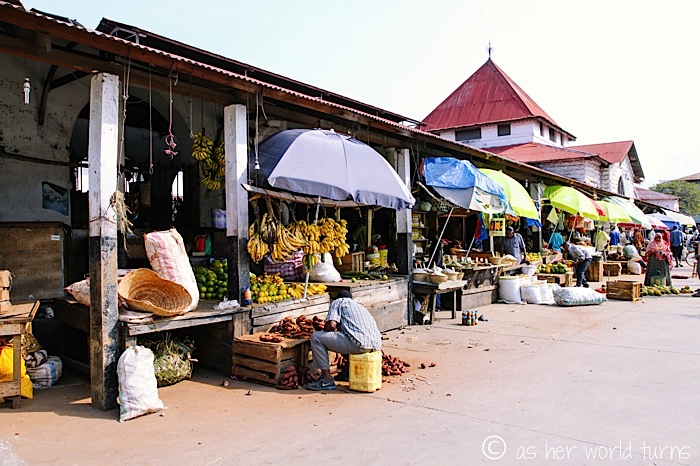
That is a fish auction room in the photo below. Unlike the Tsukiji market in Tokyo where fish merchants bid on seafood for restaurant distribution, here it’s mostly local families buying fish for the week.
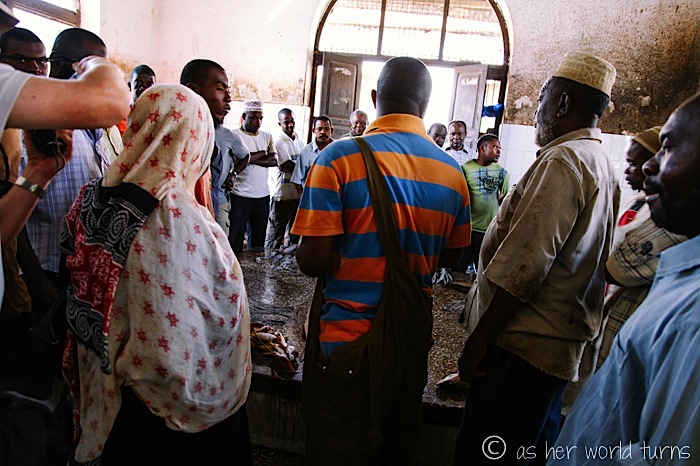
More seafood vendors:


Here’s the meat room. It smells… I take a deep breath and try to hold it while we walk through to avoid the stench. My vegetarian sister scoots out ahead.
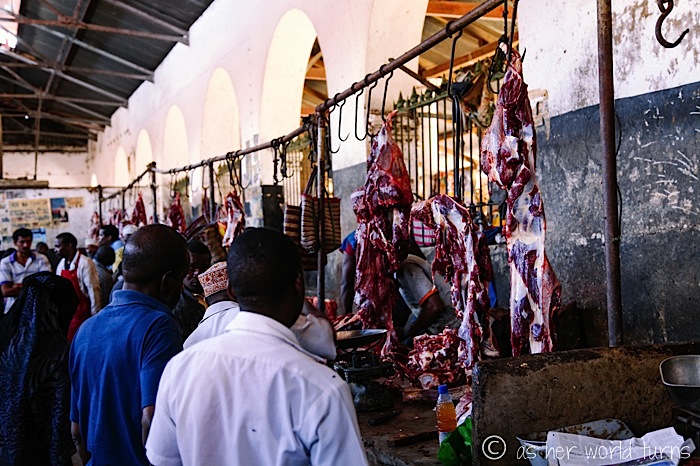
Ah, much better — onward to the produce section of the market.
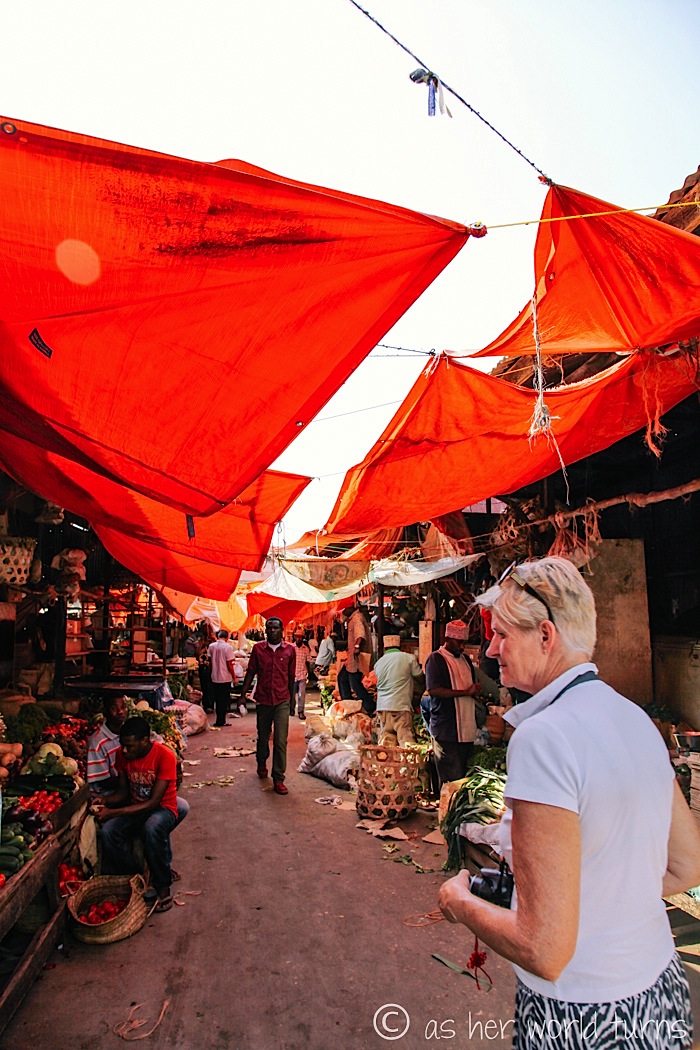
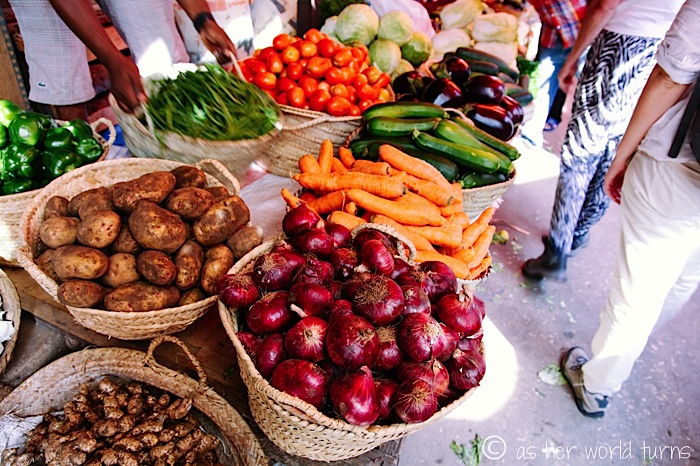
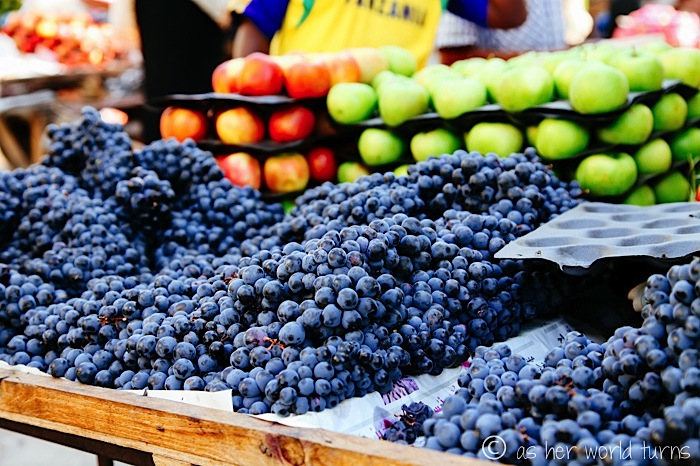
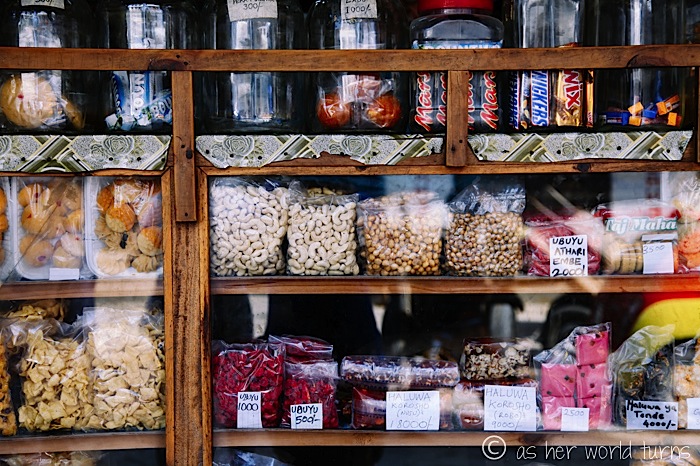
Zanzibar is sometimes referred to as the Spice Island for reasons I’ll get into tomorrow. But as the below photo suggests, items like cinnamon, cloves, nutmeg, saffron, cardamon, cumin, coriander, and pepper are easy to come by in Stone Town.

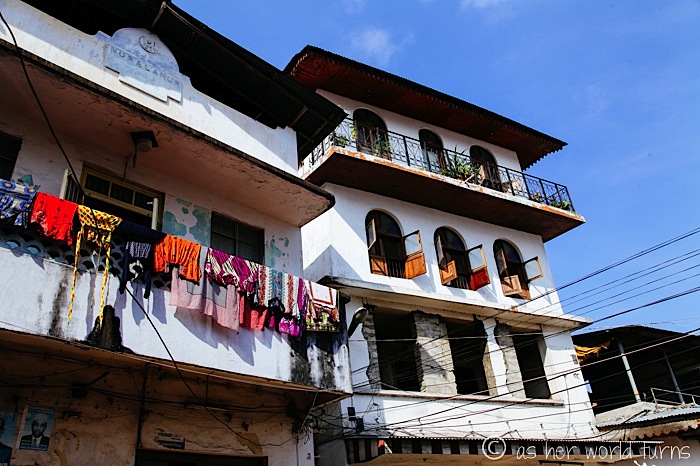
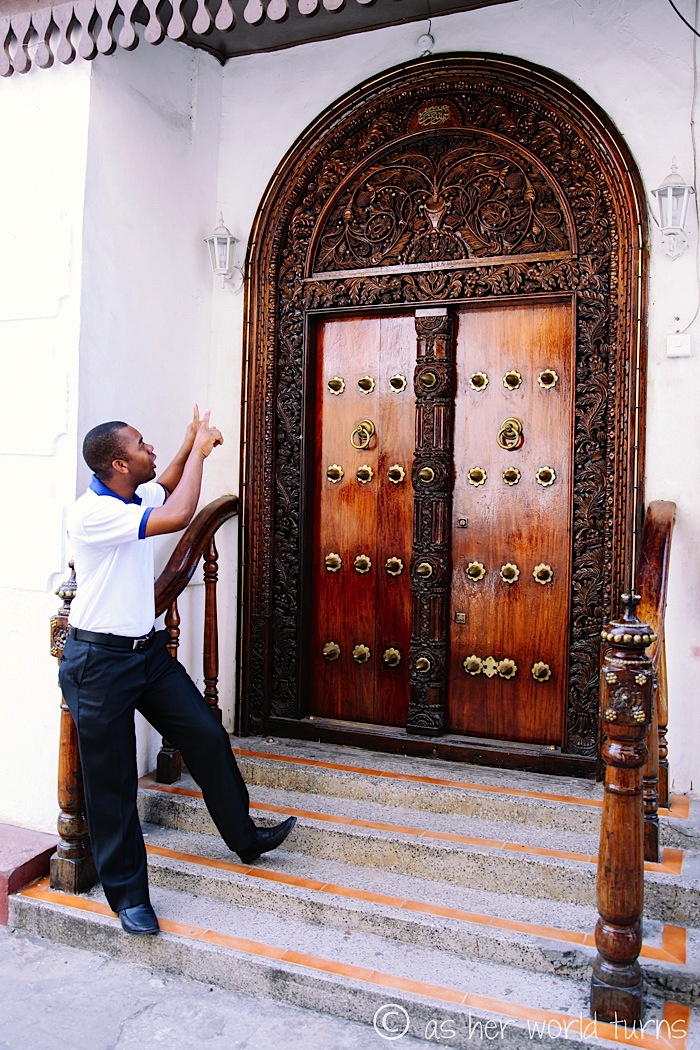
These carved wooden doors with big brass studs are iconic in Zanzibar — the more elaborate the door, the higher the status of the family or establishment.
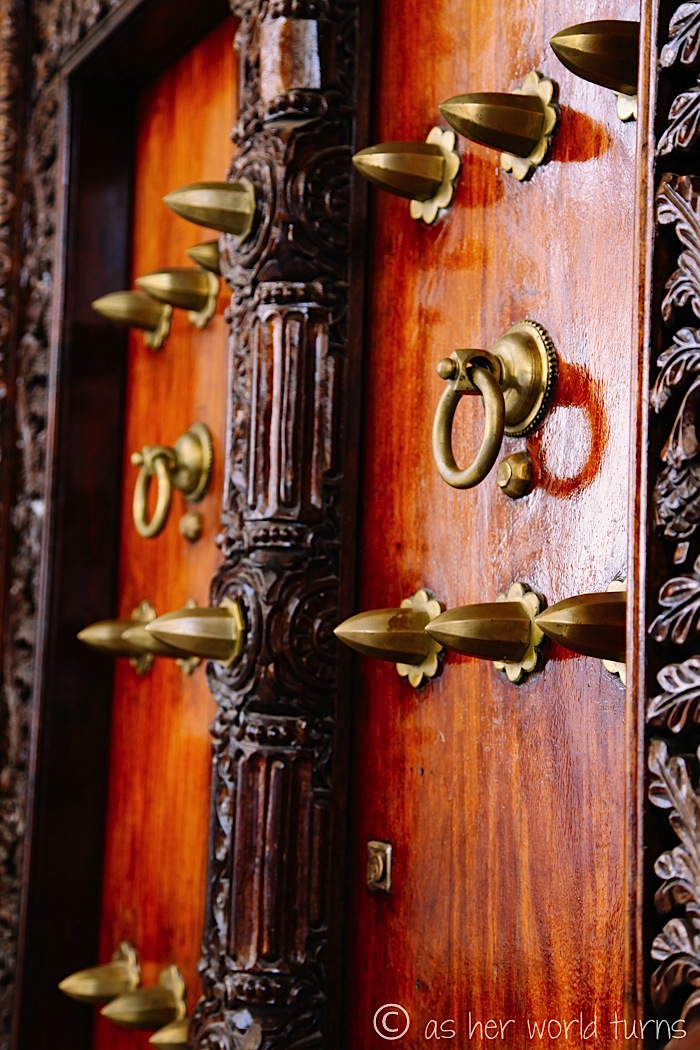
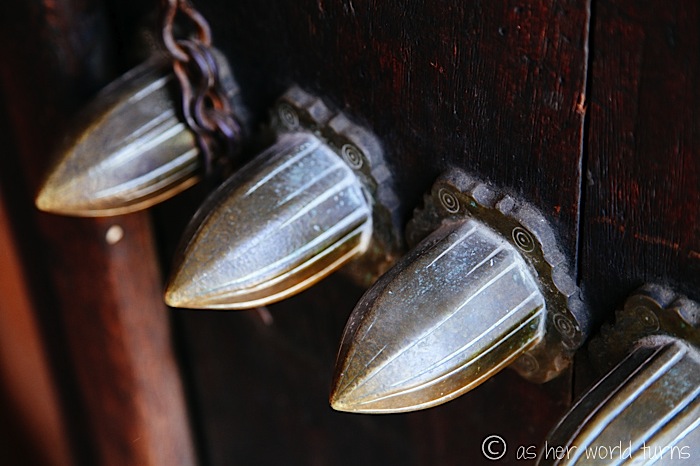
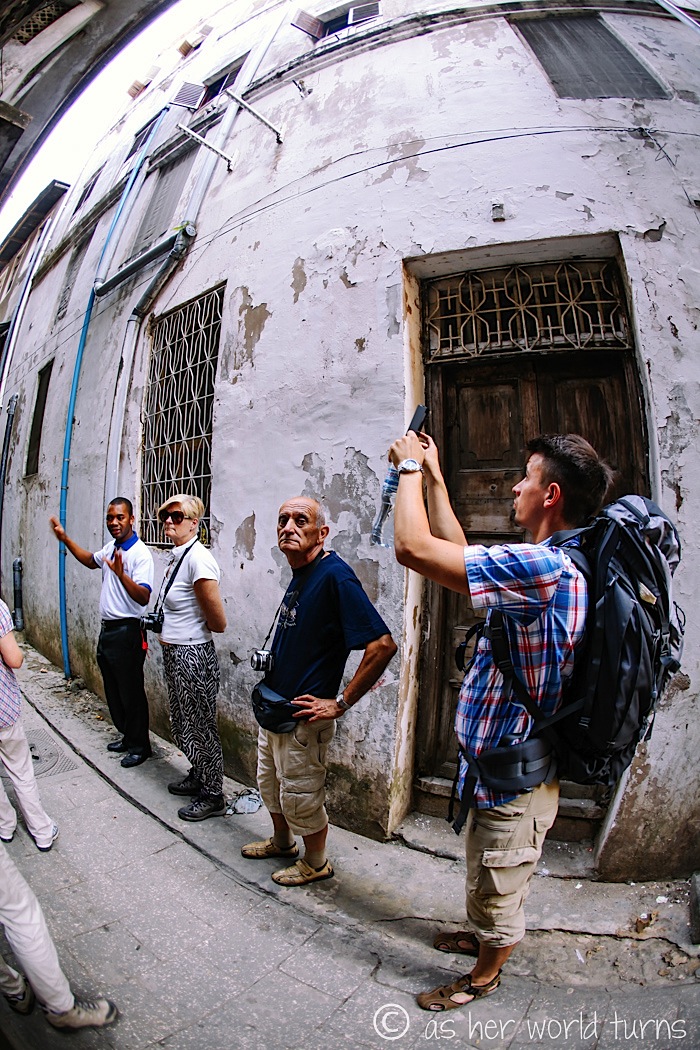
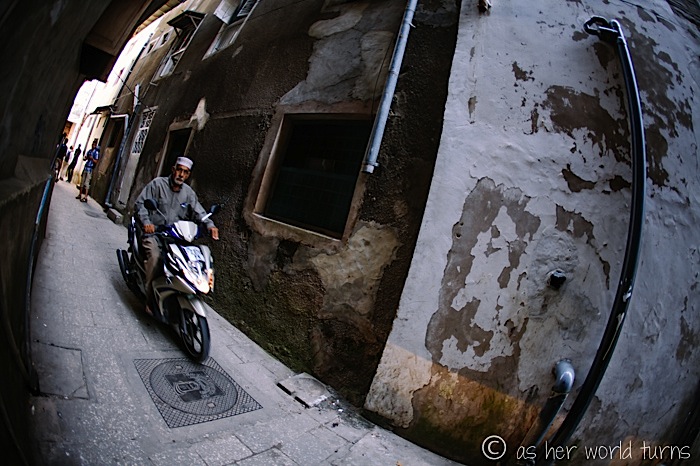
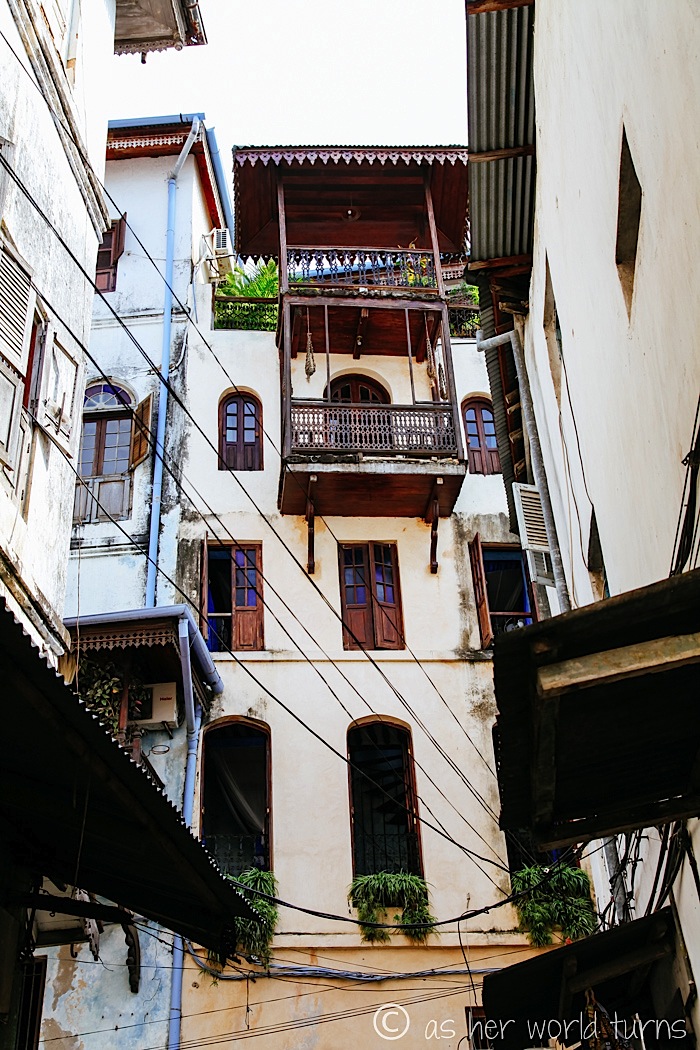
This is the Emerson Spice Hotel… I snap a photo because that’s the name of my alma mater.

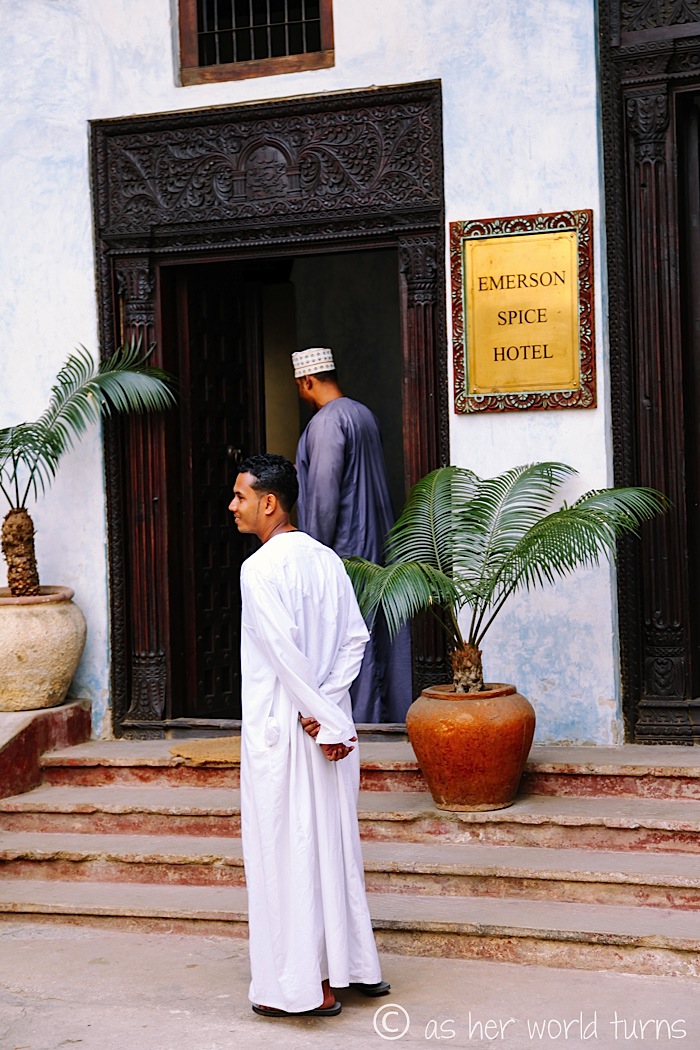
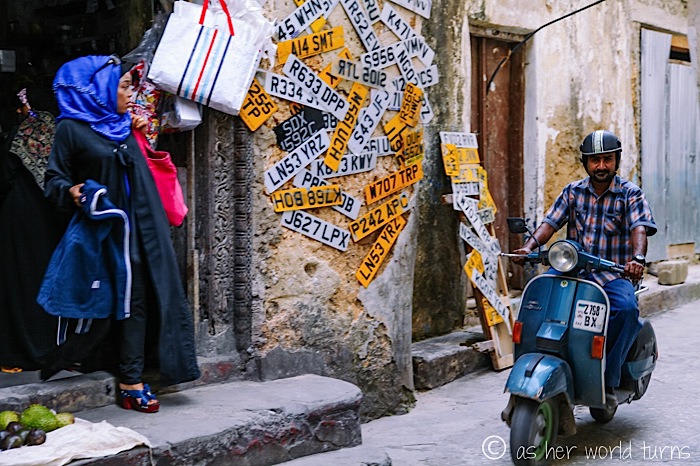
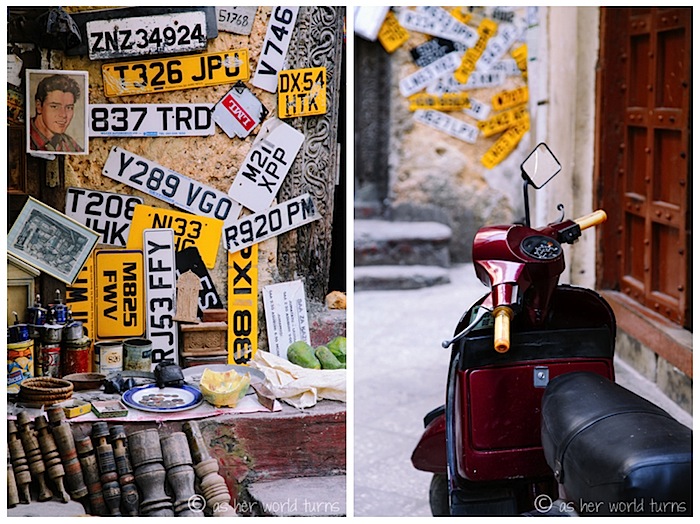
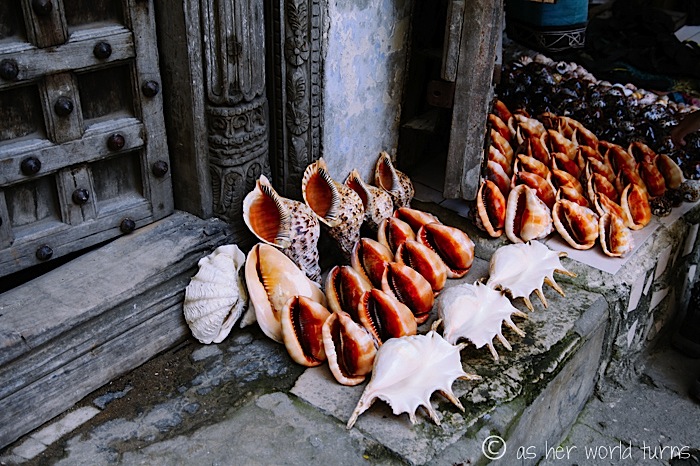
Want to take home a Zanzibar wooden door of your own? These miniature replicas are suitcase-friendly.

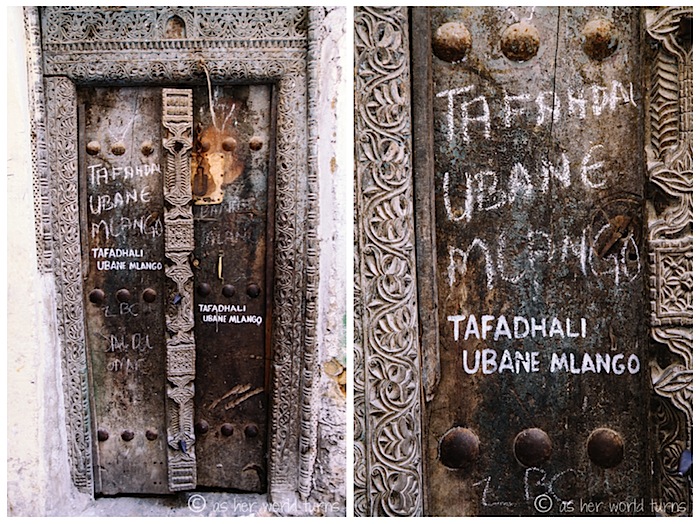
Old tires are repurposed as sandals; we spot a lot of people wearing them.
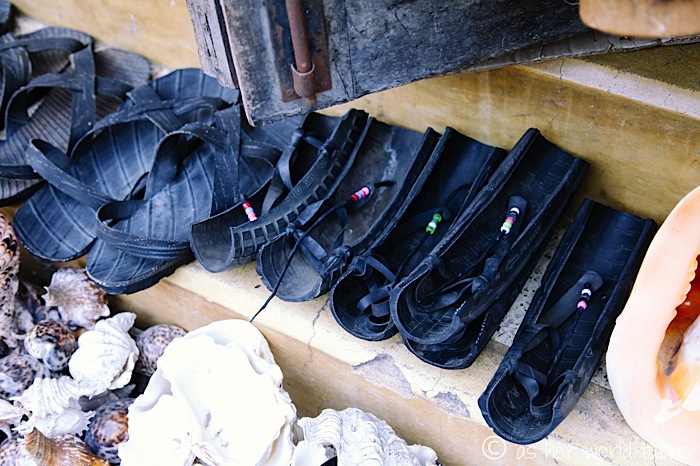
We pass by a madrasa, which is the name for a Muslim school. The island of Zanzibar is 99% Muslim.
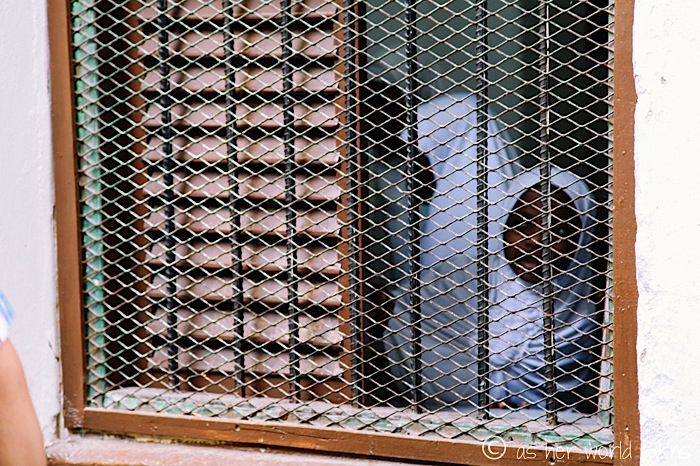
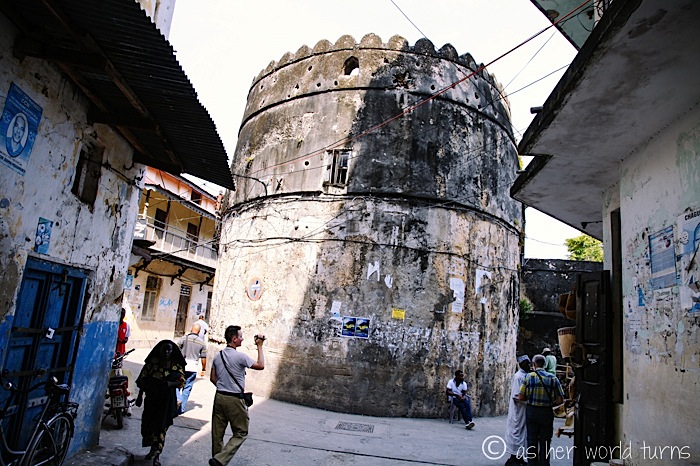

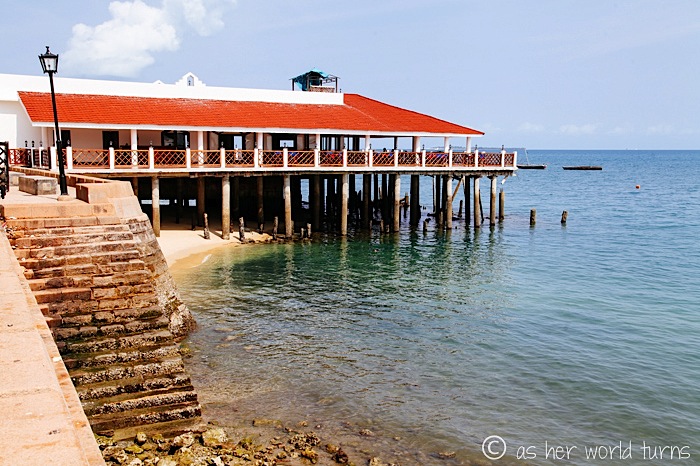
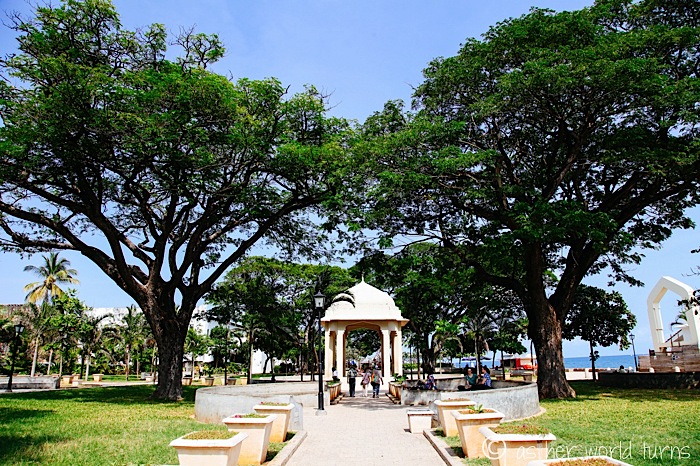
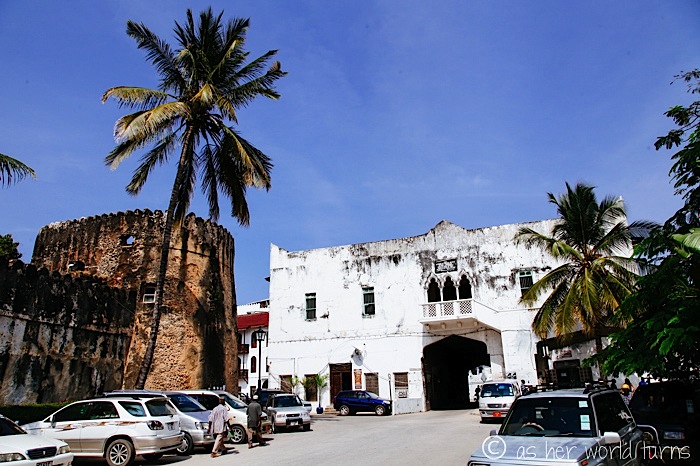
We pass through the Old Fort, which used to be a fortress but is now a cultural center.
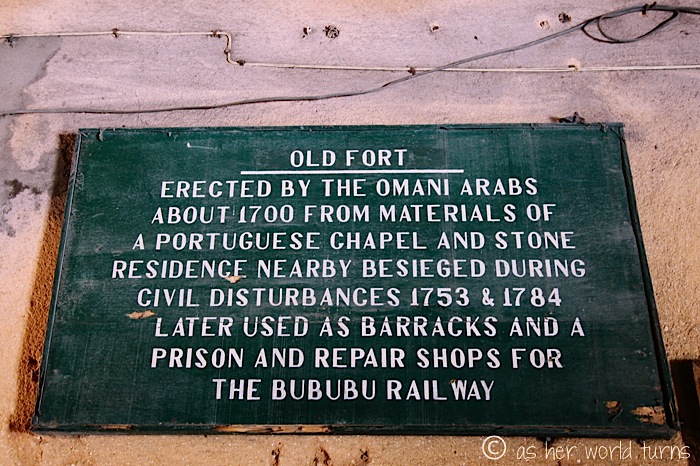
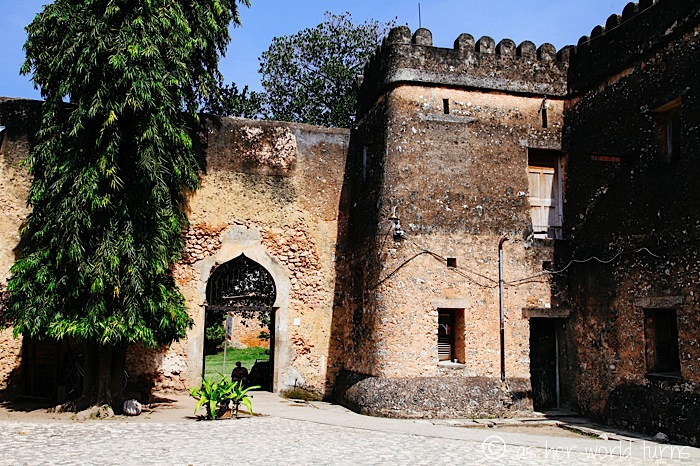
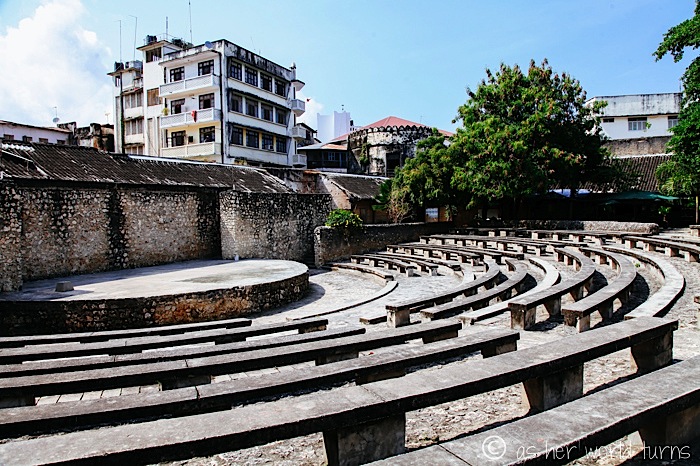
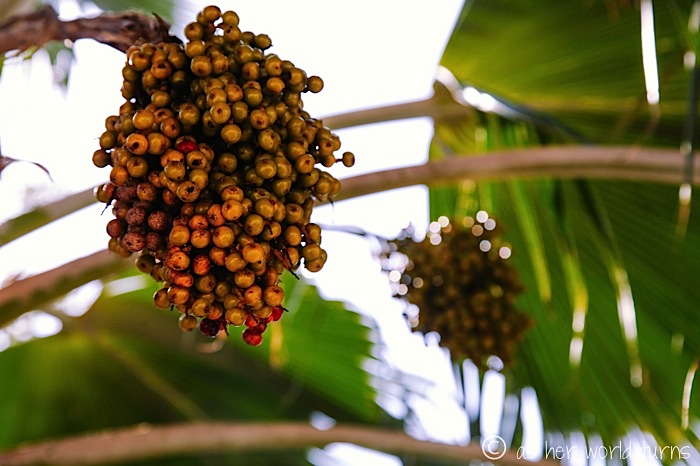
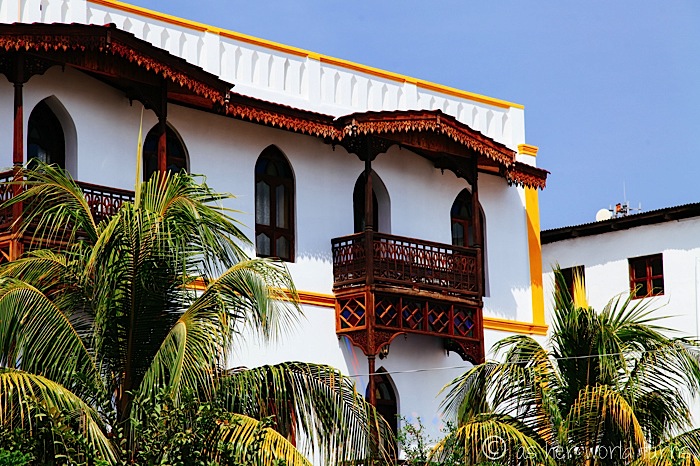
Freddy Mercury was born on Zanzibar; this was his childhood home:
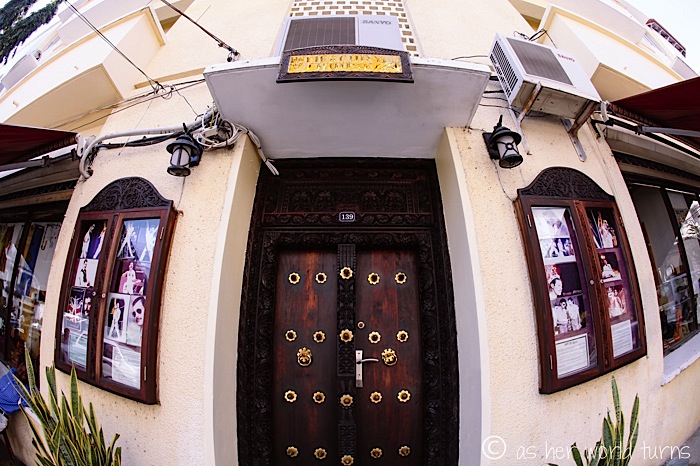
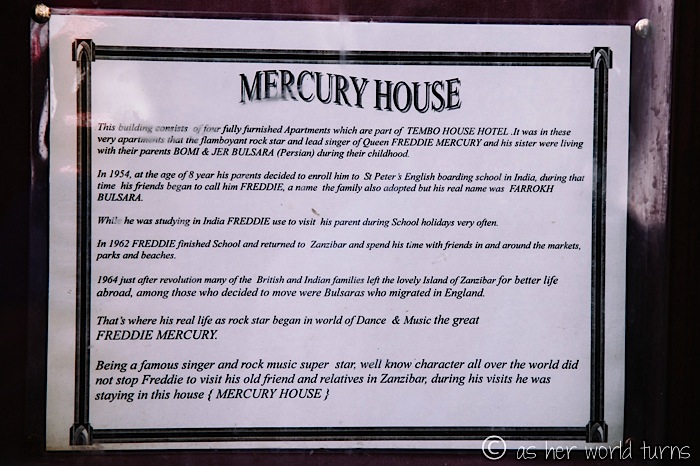
I order a cinnamon latte from Book Cafe, a very cute place:
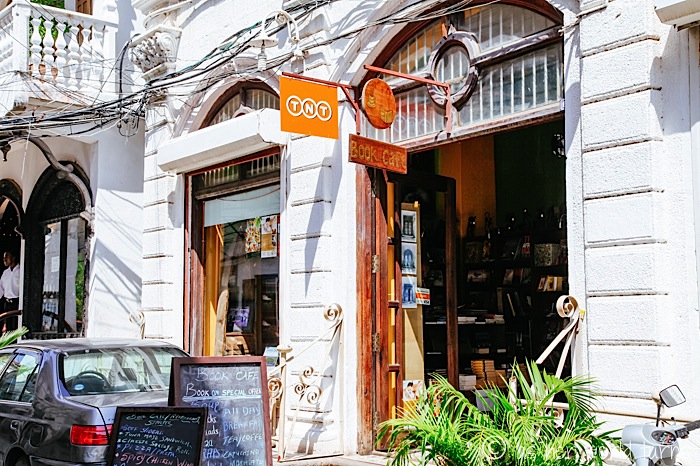
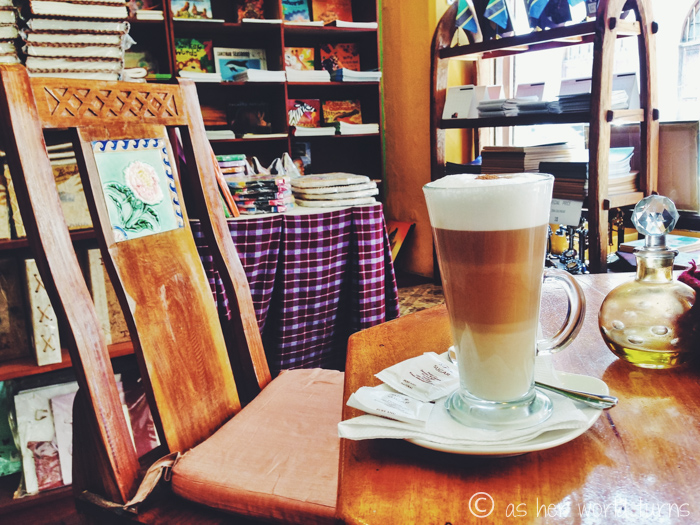
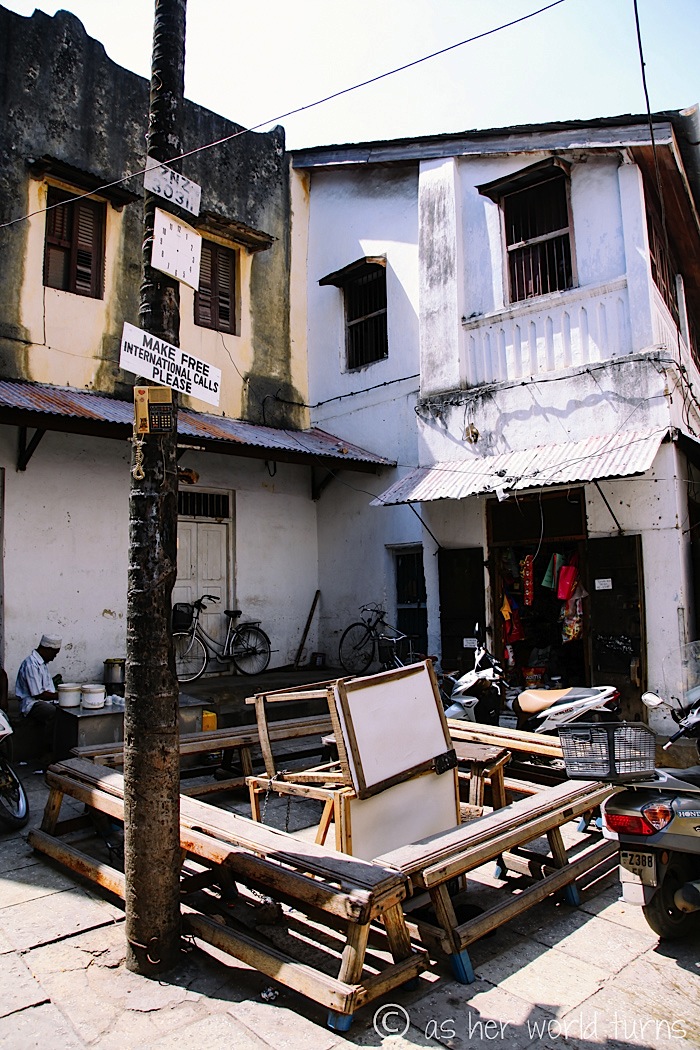
This cracks me up:
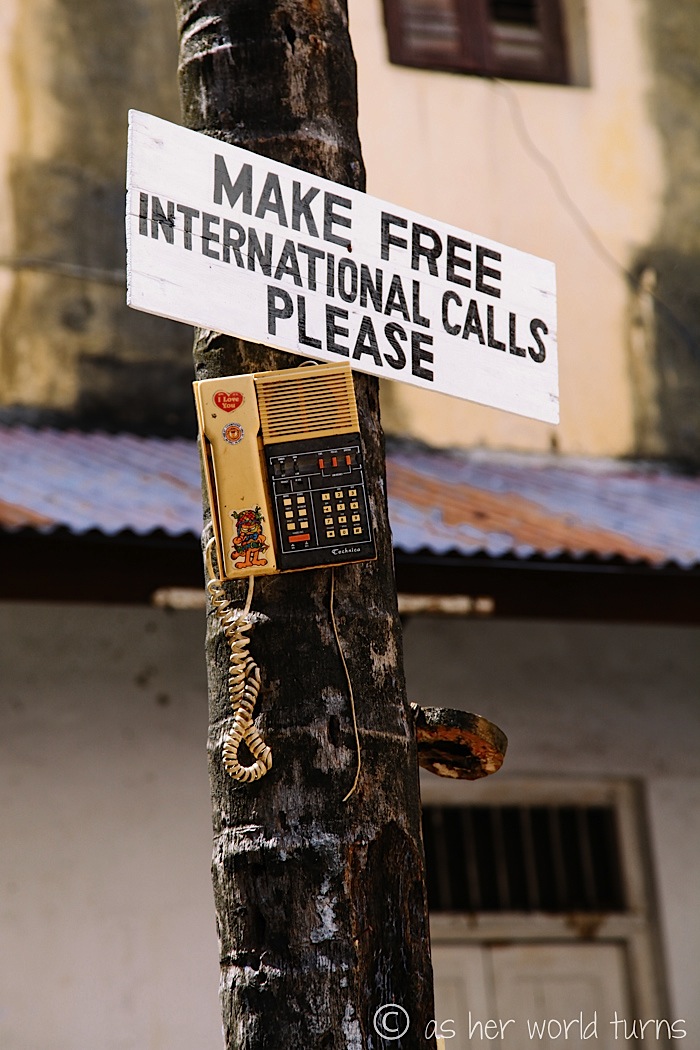
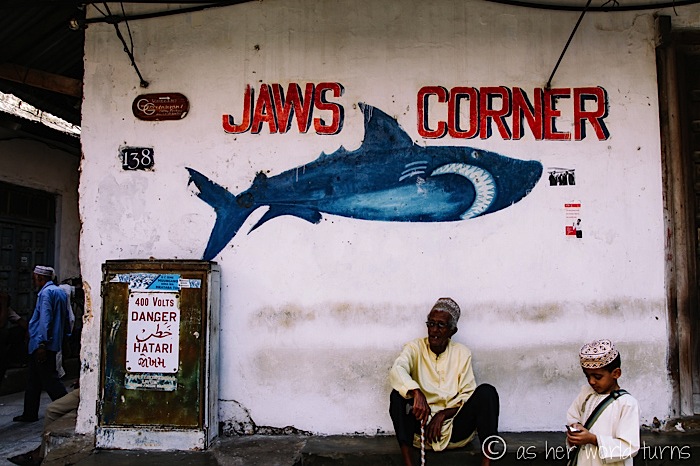
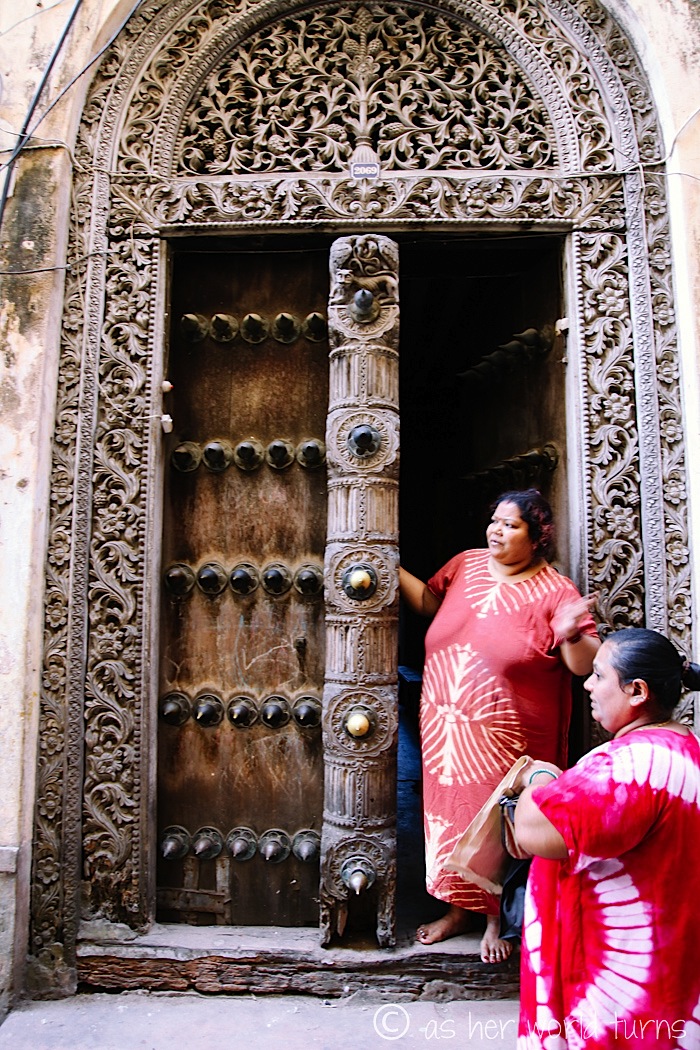
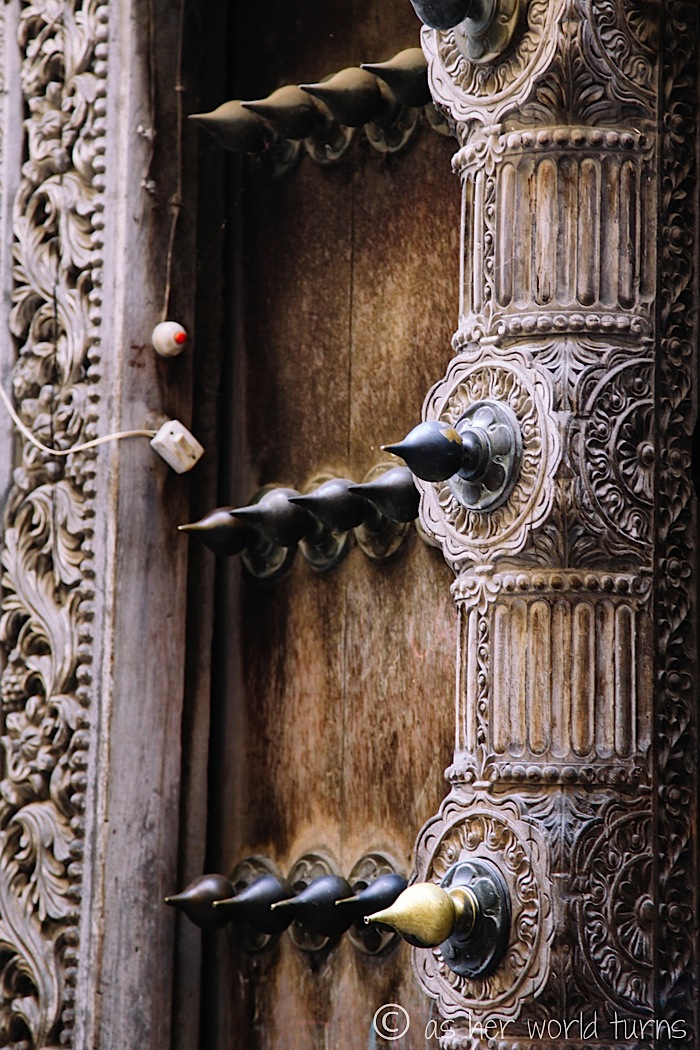
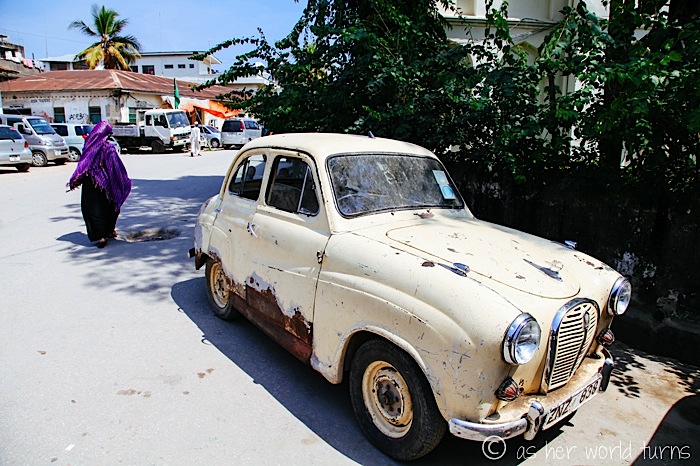
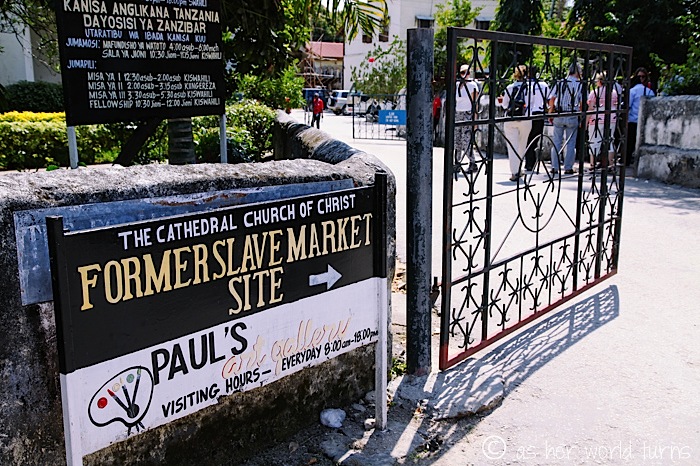
Our tour ends at this Anglican cathedral that was built in the late 1800s over the former slave market to celebrate the end of slavery. There is a museum and monument on site to document this area’s history.
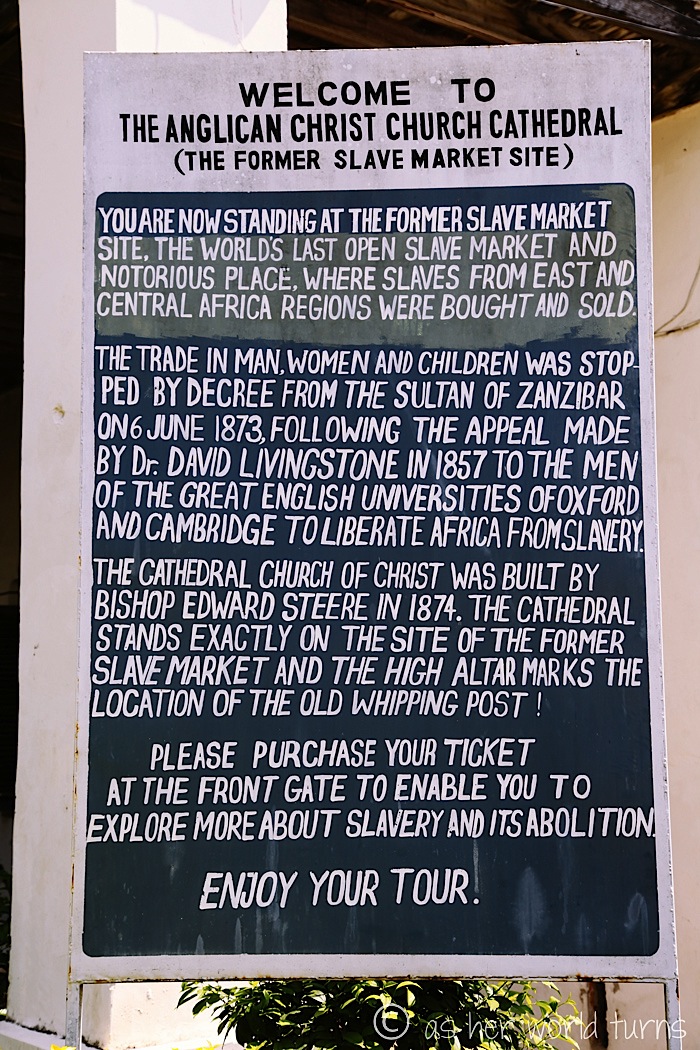
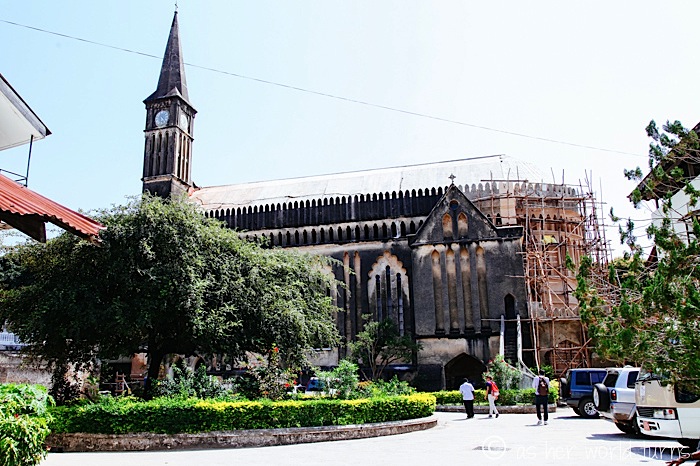
The church altar was built over the exact spot where the slave market whipping post used to be:
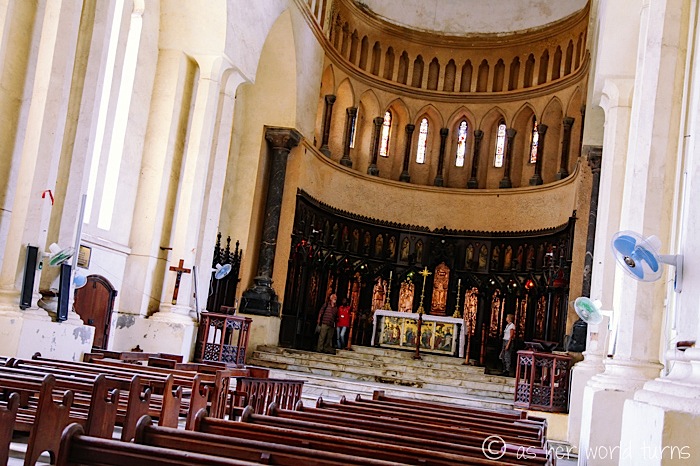
Slaves were forced by the hundreds into these tight underground quarters before being sold.
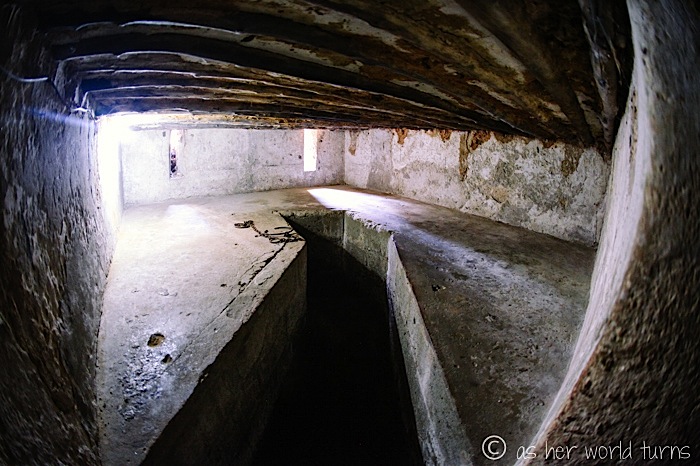
This man below is Edward Steere, a bishop of Zanzibar in the 1800s, who worked with David Livingston to abolish slavery. What Hollywood actor does he remind you of? My sister and I immediately recognize the resemblance.
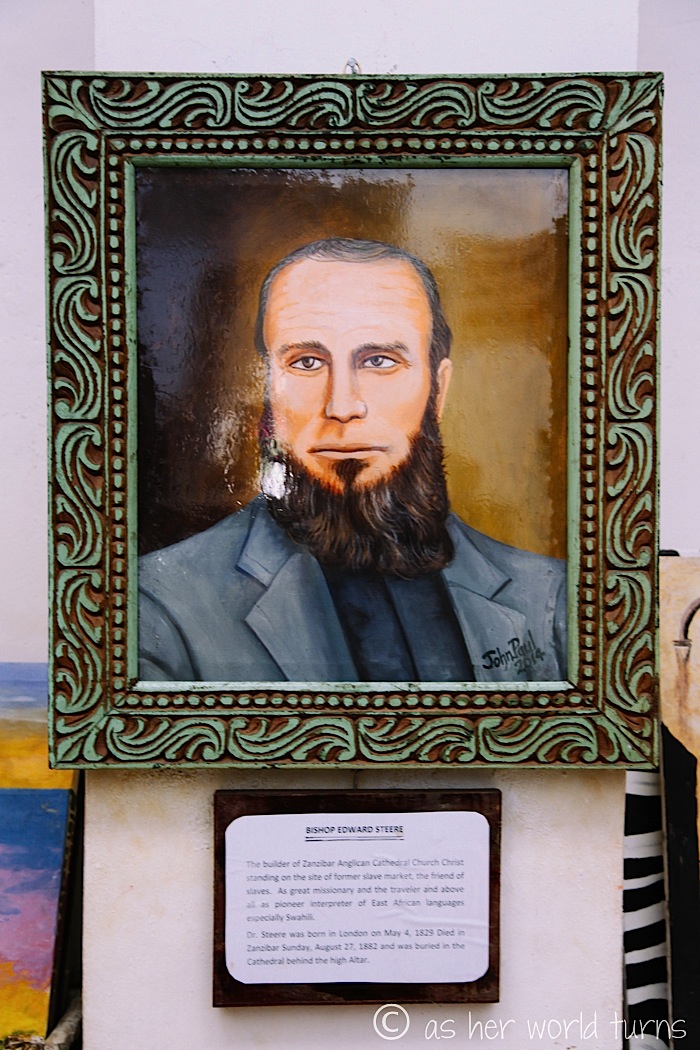
(The answer is John Travolta. See it?)
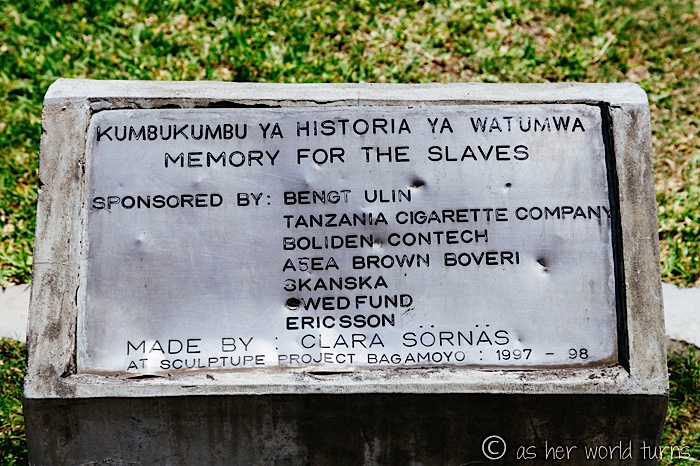
This monument stands in memory of all the slaves who passed through this market.
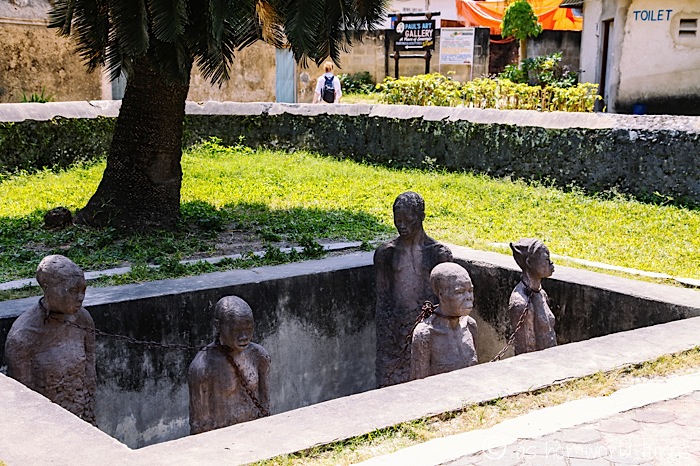
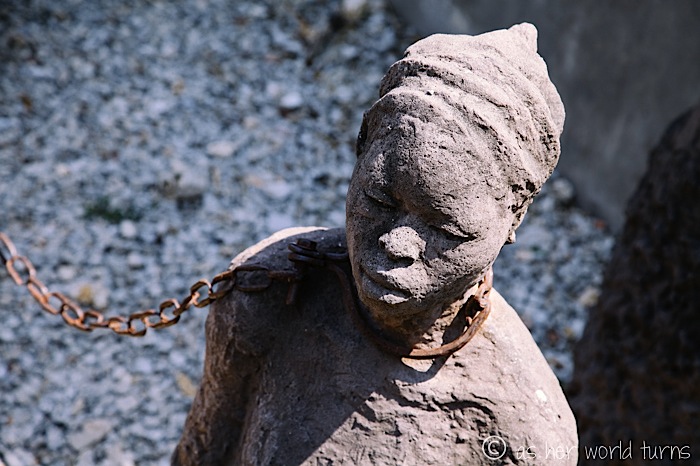
That brings our Stone Town tour to an end. It’s a unique area worth exploring — it provides tourists a deeper glimpse into Zanzibar’s history as they pass through en route to the popular beaches. We only spend three hours here, but I wish I’d had a full day to walk around and soak it up.
One last note: if you go on your own without a tour guide, bring a good map because there are a lot of alleyways and it’s easy to get lost. One of our tour mates got separated from the group and we couldn’t find him for 90 minutes — he eventually made his own way back to the hotel.

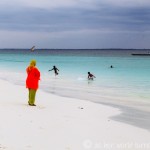
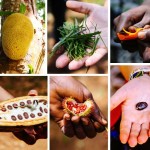




Hi! What walking tour did you use?
Thanks.
Hi Maggie, I was traveling on a month-long overland tour with Nomad Adventures, and they arranged a local company/guide for anyone in our group who wanted to go on the Stone Town tour. So I’m not sure which one we used since I didn’t book it myself.